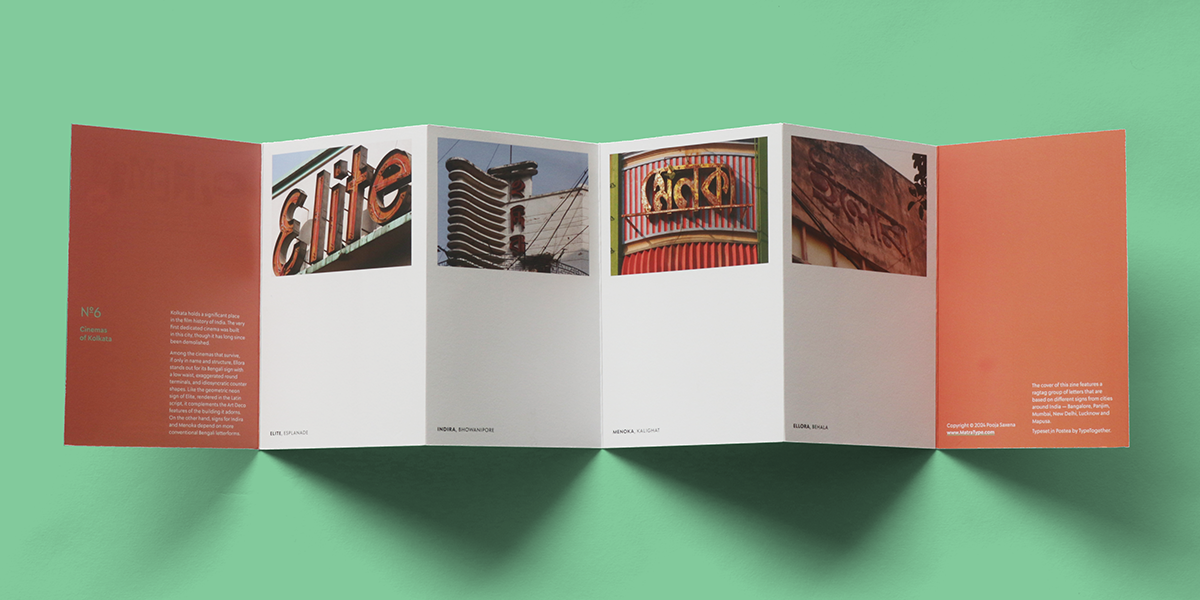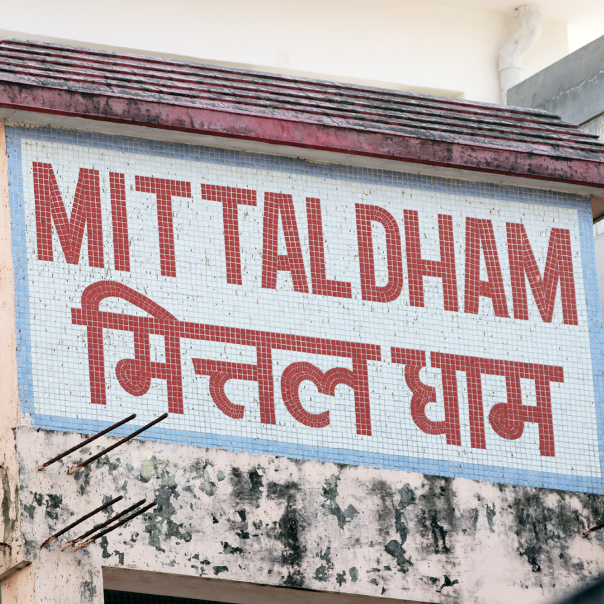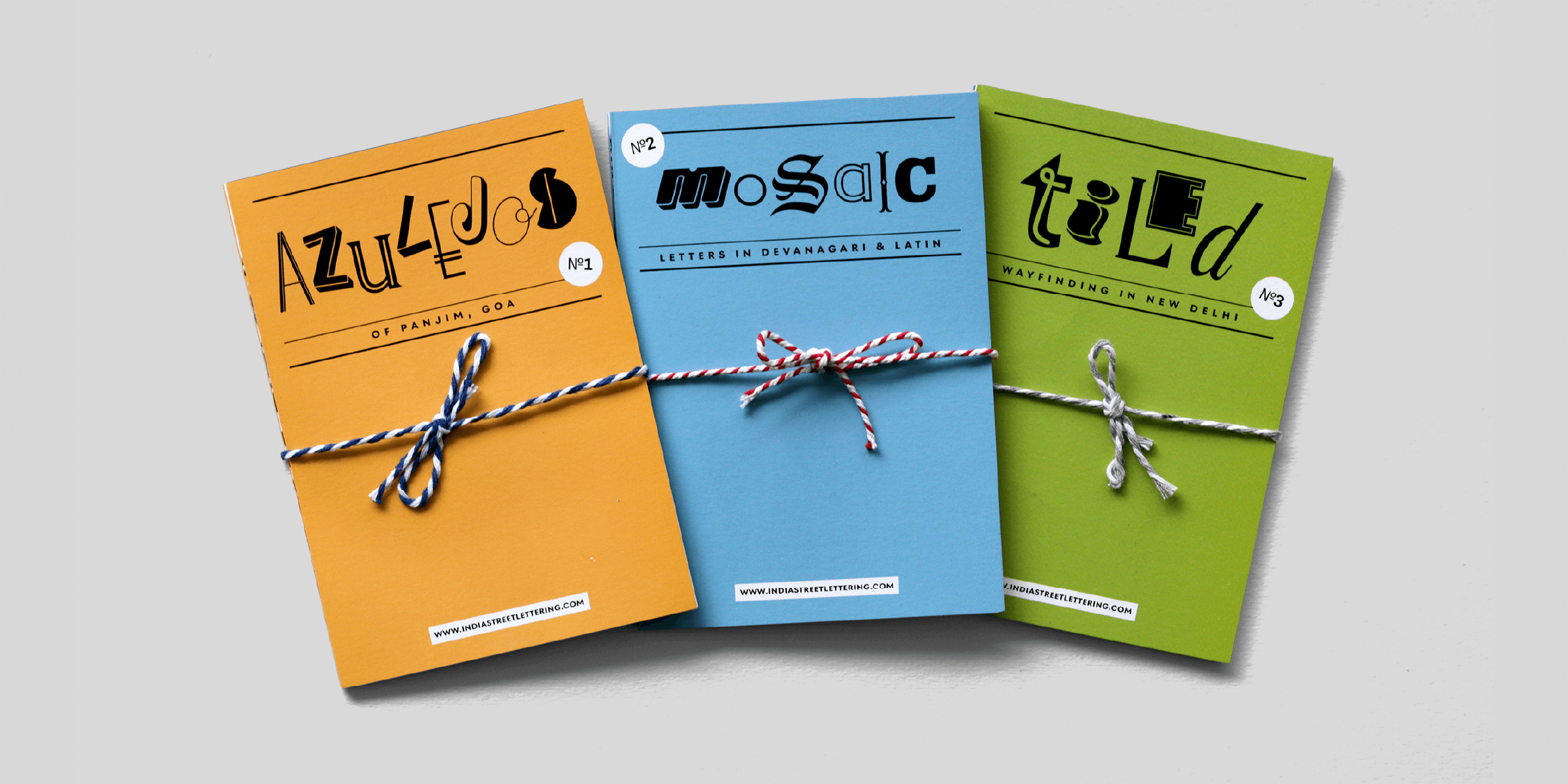Based on the visual record of public signage in the country that is housed under India Street Lettering, the theme of each zine is catalysed by a medley of influences such as material, script, location, function and historical context. Since 2023, two batches have been published: the first focused on the use of tiles in street lettering, and the second features cinema signs from Lucknow, Hyderabad and Kolkata.
India Street Lettering zines have been exhibited at Opn Art House by Gaysi, the City Scripts 2024 festival by Indian Institute for Human Settlements, and as part of Paper and Play by Pulp Society; and accepted into the collections of the Letterform Archive and the Snap, Snap, Sizzle Library at the University of Arkansas’ School of Art’s graphic design program.
№4–6
Cinemas Bundle
Tiles may not be the first material that comes to mind when one thinks about street lettering in India, but look closely, and one finds that they are used in several ways to create recognisable lettering that is rooted in local culture.

This bundle of zines recognises three such themes — azulejos, or hand-painted, glazed tiles seen in Panjim which are striking visual reminders of Portuguese influence in Goa; fast-disappearing tiled signage in New Delhi, which is distinctive in its use of monospaced letterforms in two scripts; and mosaic signs, which are a provocation to appreciate and understand how vastly different letterforms from Devanagari and Latin scripts adapt when they are rendered in a limiting medium.



№1–3
Tiles Bundle
Tiles may not be the first material that comes to mind when one thinks about street lettering in India, but look closely, and one finds that they are used in several ways to create recognisable lettering that is rooted in local culture.

This bundle of zines recognises three such themes — azulejos, or hand-painted, glazed tiles seen in Panjim which are striking visual reminders of Portuguese influence in Goa; fast-disappearing tiled signage in New Delhi, which is distinctive in its use of monospaced letterforms in two scripts; and mosaic signs, which are a provocation to appreciate and understand how vastly different letterforms from Devanagari and Latin scripts adapt when they are rendered in a limiting medium.


